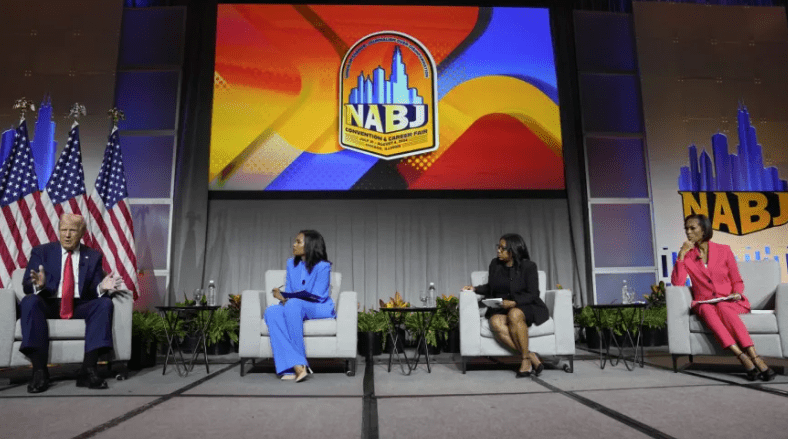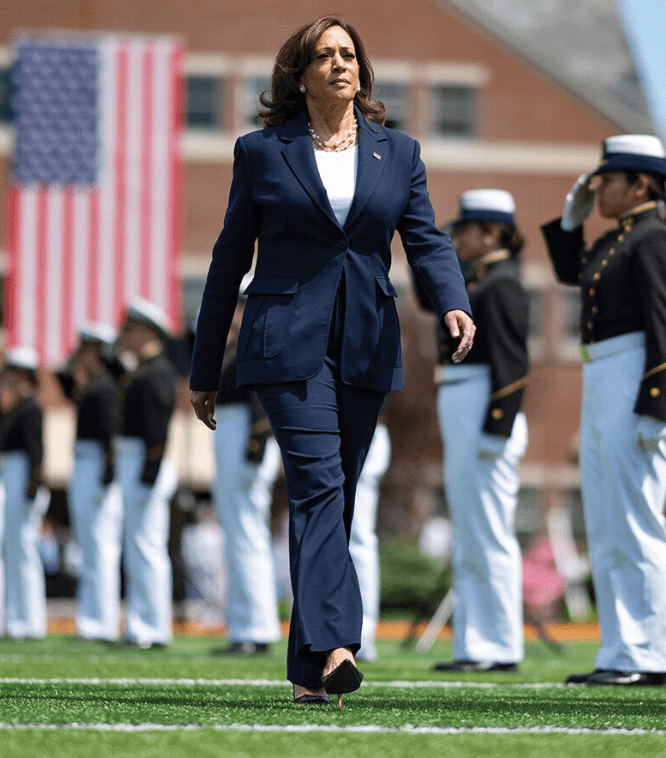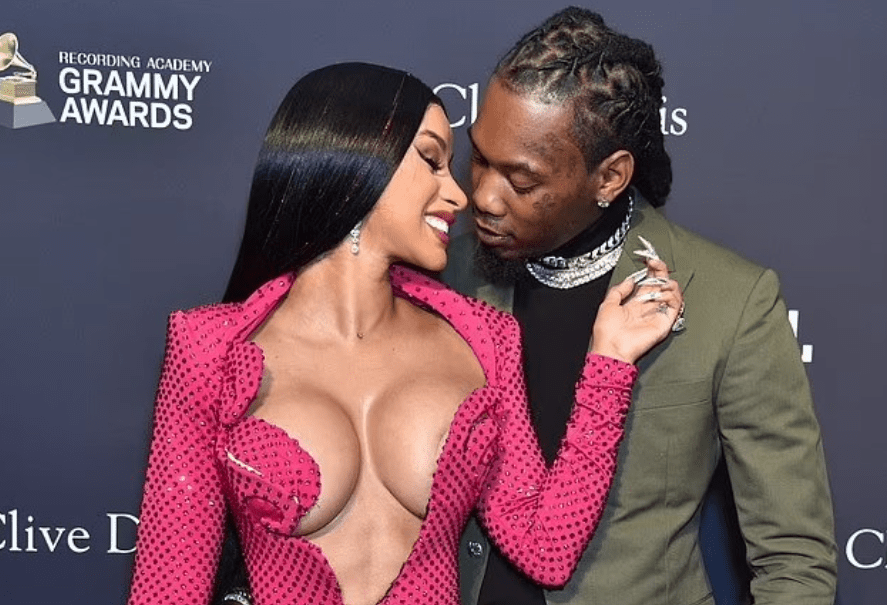Former President Donald Trump questioned Vice President Kamala Harris’ racial identity during an appearance at the National Association of Black Journalists convention in Chicago, sparking widespread backlash.
During the heated exchange, Trump falsely asserted that Harris had predominantly highlighted her Asian-American heritage until recent years, claiming, “she became a Black person.” He said, “I didn’t know she was Black until a number of years ago when she happened to turn Black and now she wants to be known as Black.”
The vice president’s campaign swiftly responded, condemning Trump’s “tirade” as indicative of the “chaos and division” that typifies his rhetoric. The White House also criticised the comments, labelling them “repulsive.”

Kamala Harris, the first Black and Asian-American vice president, has parents of Indian and Jamaican descent.
She attended Howard University, a historically Black university, and joined Alpha Kappa Alpha, a predominantly Black sorority. After entering the Senate in 2017, Harris became a member of the Congressional Black Caucus.
ABC News correspondent Rachel Scott, one of the event’s moderators, pressed Trump on his comments, leading to a tense interaction.
Trump attempted to justify his stance, saying, “I respect either one. But she obviously doesn’t because she was Indian all the way and then all of a sudden she made a turn and she became a Black person.”

White House press secretary Karine Jean-Pierre defended Harris, stating, “No one has any right to tell someone who they are, how they identify. That is no one’s right.” New York Representative Ritchie Torres also rebuked Trump, questioning, “Who appointed Donald Trump the arbiter of Blackness?” and describing him as a “relic of a racist past.”
Trump’s history of racially charged attacks on opponents includes his baseless assertion that Barack Obama, the nation’s first Black president, was not born in the US. He also falsely claimed that former UN ambassador and Republican primary opponent Nikki Haley could not be president because her parents were not US citizens when she was born.
Since becoming the presumptive Democratic nominee, Harris has faced numerous attacks from Republicans, some of whom suggest her race is the sole reason for her place on the ticket. Tennessee Congressman Tim Burchett labelled her a “DEI vice-president,” referencing diversity, equity, and inclusion programs.
Scott further challenged Trump on whether he believed Harris was a “DEI hire.” He ambiguously replied, “I really don’t know, could be.”
Harris’ upbringing reflects a blend of her Indian heritage and the Black culture of Oakland, California, where her mother immersed her and her sister.
Trump also criticised Harris’ professional credentials, mentioning her initial failure to pass the bar exam. “I’m just giving you the facts. She didn’t pass her bar exam and she didn’t think she would pass it and she didn’t think she was going to ever pass it and I don’t know what happened. Maybe she passed it,” he said. Harris graduated from the University of California Hastings College of Law in 1989 and passed the bar exam on her second attempt. The state bar of California notes that less than half of first-time test takers pass the exam.
The discussion in Chicago began with a contentious exchange between Scott and Trump, who accused the journalist of delivering a “very rude introduction” by addressing his history of criticism toward Black people. Trump defended his record, asserting, “I love the Black population of this country, I’ve done so much for the Black population of this country.”
Hours later, Trump criticised the event on his social media platform, claiming, “The questions were rude and nasty, often in the form of a statement, but we CRUSHED IT!”

